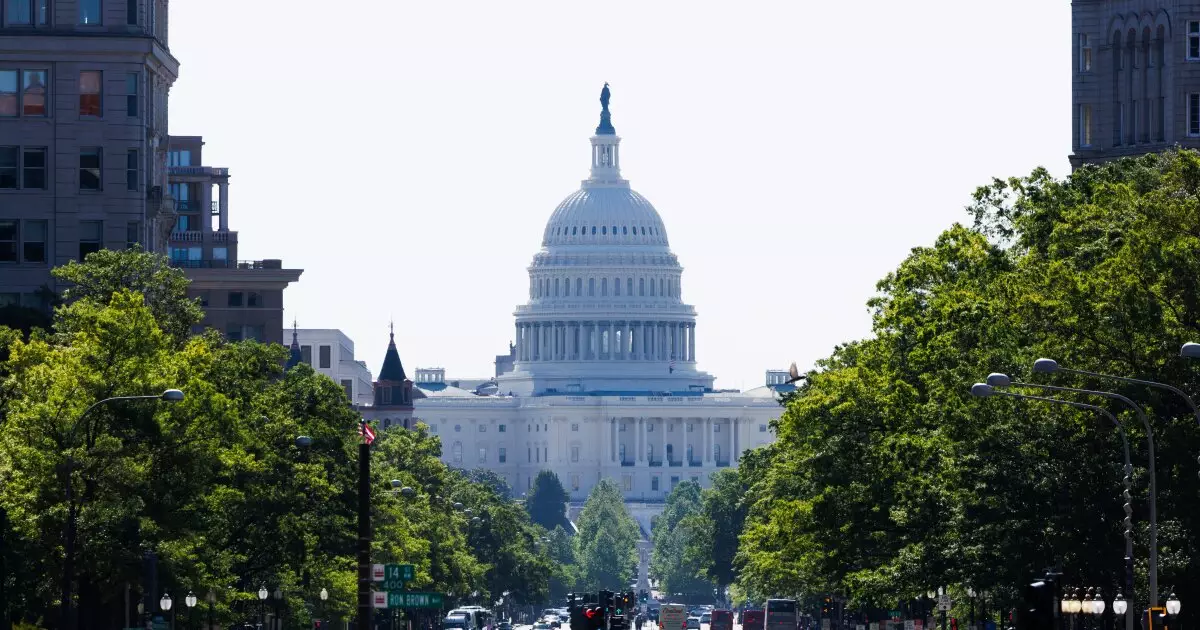On a frenzied Friday in the House Ways and Means Committee, the preliminary draft of the tax portion of the so-called “big beautiful bill” was unveiled. Promoted as a panacea for economic woes, this 28-page document proposes to solidify the provisions of the 2017 Tax Cuts and Jobs Act—essentially putting a gilded seal on tax breaks that are set to expire. As discussions swirl around this ambitious legislative move, it’s impossible to ignore the glaring short-sightedness demonstrated in the draft.
Most strikingly, this bill seeks to remove the expiration date from the alternative minimum tax and extend a lift on the child tax credit, ostensibly aiming to boost familial finances. However, buried within its intricate text lies an alarming lack of foresight regarding revenue offsets. The omission of any discussion surrounding these offsets has understandably incensed stakeholders, particularly within the municipal bond market. There’s a palpable fear that the tax exemption will be the sacrificial lamb required to cover the bill’s escalating costs.
The SALT Stalemate
In the world of tax legislation, few issues are as contentious as the state and local tax (SALT) deduction cap. The draft curiously sidesteps this massive elephant in the room, despite the fact that the SALT Caucus—comprised of representatives from high-tax states—has made it abundantly clear that their support hinges on an acceptable adjustment to this cap. This absence of acknowledgment in the draft is not merely an oversight; it illustrates a fundamental disconnect between policy makers and the economic realities faced by constituents in high-tax states.
As High Tax Republicans prepare to meet with House leadership to voice their demands, the urgency for compromise becomes crystal clear. If party leaders can’t strike a reasonable balance on this issue, they risk alienating substantial voter bases during an already precarious political climate. The credibility of the reconciliation bill is at stake, and failure to engage with SALT realties may spell doom for other tax reforms intended to stimulate economic growth.
The True Cost of Tax Cuts
When the bill’s projected financial implications are examined, the figures provoke intense scrutiny. Estimated to cost around $5 trillion, the implications of this tax overhaul extend further than mere economic theory—this price tag far exceeds the $4.5 trillion allocated under the current budget resolution approved in April. Organizations like the Committee For a Responsible Federal Budget have pointed out that this draft may add a staggering $5 trillion to primary deficits through the year 2034.
Let’s not beat around the bush: this kind of fiscal irresponsibility must be met with skepticism. The call for pro-family and pro-worker tax provisions, as articulated by Committee Chair Rep. Jason Smith, R-Mo., while undoubtedly noble, raises pressing questions about sustainability. The proposal’s cost intricacies bring about an uncomfortable reality—these tax cuts could become a heavy burden for future generations to bear, threatening the integrity of the nation’s financial landscape.
A Call for Accountability
As we digest the implications of this released draft, it’s crucial for lawmakers to introspect and reevaluate the direction of their fiscal policies. There’s a concerning trend of prioritizing immediate gains over long-term stability. Lawmakers must operate under the mantle of accountability and not only pursue short-term political wins that appear attractive but could lead to disastrous economic ramifications.
With Treasury Secretary Scott Bessent’s warning ringing in Washington’s ears—that the nation teeters on the brink of financial incapacity—the pressure is mounting. Congress needs to grapple with the implications of raising the debt ceiling by $4 trillion, intertwined with the reconciliation bill—a move which essentially endorses more borrowing. The path forward isn’t merely a political maneuver but a prudent economic strategy. Far too much is at stake to pass a bill that lacks a vision for sustainable growth. We must demand better from our leaders, holding them accountable for ensuring that fiscal policy serves the greater good, devoid of superficial bookkeeping games that offer little more than an alluring façade.

